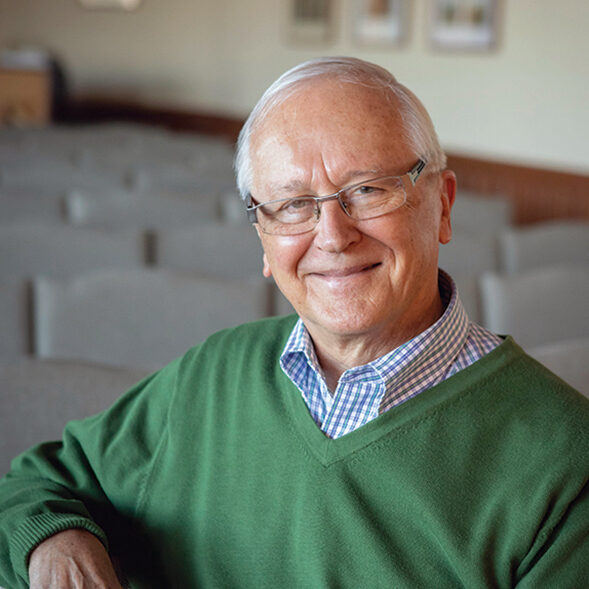 |
“Now these three remain: faith, hope and love. But the greatest of these is love” (1 Corinthians 13:13).
Love is the greatest of our many blessings. But how? We might consider how much love is a part of our personal lives, how much love is needed in our relationships with others, or even how much and how often we yearn for love.
But first, let me suggest that love is a uniquely Christian concept. Of course, that assertion will have its opponents ready to contradict, but much can be said in defense of that idea. Remember that Jesus taught the two main principles of life were to love God and love your neighbor as yourself (Matthew 22:36-40).
Jesus also taught the greatest example of love, “Greater love has no one that this: to lay down one’s life for one’s friends” (John 15:13). We might all cite examples of the sacrifice of a parent for a child, one spouse for another, and even soldiers laying down their lives for comrades, friends, loved ones, and country. We honor such sacrifices.
But Jesus did more than teach; he sacrificed himself. His sacrifice is an enormous step forward from other examples. Paul identifies the critical difference: “While we were still sinners, Christ died for us” (Romans 5:8). We were not his friends by birth or nature. We were born with cold, selfish hearts. We were his enemies—sinners and rebels who opposed him and even now sometimes have little time for his loving sacrifice.
Yet he loved us and sacrificed himself. That was not an accident. It was part of God’s love from the very beginning—even before the beginning. “God so loved the world that he gave his one and only Son . . . to save the world through him” (John 3:16,17). When God said, “Let us make mankind in our image” (Genesis 1:26), it was before any good could come from any human effort. He loved. He made. When those two humans stumbled, he still loved them and all who would follow them. In love, he promised to undo the sin and death they introduced into human history.
You see, it is as John wrote, “God is love . . . and sent his Son as an atoning sacrifice for our sins” (1 John 4:8,10). That love has the power to warm our hearts, melt the cold hardness, and create love for God and others. His love is steadfast, loyal, enduring, kind, and faithful, even in the face of our fickle human attitudes and behavior. He freely loves us and promises forgiveness and eternal life. We have faith and hope because of it.
That makes God’s love great. We also measure its greatness in that it warms our hearts to love him and others, “Since God so loved us, we also ought to love one another” (1 John 4:11). Love has profound, practical value. It moves us to “value others above [ourselves]” (Philippians 2:3). It works in all our relationships, including marriage. It teaches us to be patient, kind, humble, forgiving, trusting, and not easily angered as God has been for us. Without love we are only clanging cymbals or a harsh sounding gong. It is a warm hand stretched out to help, a hug of comfort, a smile of welcome, a word of encouragement, a patient and understanding ear to listen.
How difficult it is to love so! We remain imperfect. How often we fail! We return to Jesus with tears of regret and repentance, renew our faith in his love, and then refresh our love for others.
Author: John Braun
Volume 109, Number 12
Issue: December 2022
- We have love
- We have hope
- We have faith
- I come
- Love one another
- Palmetto palms and wrens
- Fathers
- Mother’s Day
- Believe the Word
- The Judas priority
- In Christ
- A thought: Mary
- Come, Lord Jesus!
- A thought: Here we stand!
- A thought: Obedience
- A thought: Hope
- A thought: Almighty God
- A thought: Scripture alone
- A thought: Their message to us
- A thought: The Ides of March
- A thought: The path of the righteous
- A thought: The Bible still matters
- A thought: Happy birthday, Brother!
- A thought: Change
- A thought: Our Father
- A thought: The difference
- A thought: Imperfect world, imperfect life
- A thought: Joy and peace today and everyday
- A thought: Good job!
- In God’s hands
- A thought: Outing death
- A thought: The Christ
- A thought: Trusting what we cannot see
- A thought: Partners
- Heirs of heaven
- Hope
- The Avengers and two lions
- Faith in Jesus
- God’s policy of love
- Lord, have mercy!
- Light in the darkness
- Why?
- The shroud
- A Lutheran Lent
- Where is God?
- Turning pages






